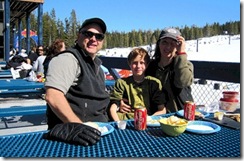Fellow UK work innovation evangelist Katie Ledger forwarded me another gem, this time a piece on ‘The Future of Offices’ by Paul Warner, Chair of the British Council for Offices Urban Affairs Committee and Research Director at 3D Reid. A well composed and authoritative piece supporting pretty much all of the tenets and principles of Dynamic Work. Here are a few choice excerpts…
“The future workplace will be the opposite [of] the ‘city as office’. Companies will downsize their property footprints and make use of city-centre facilities that are publicly available – coffee shops, restaurants, pubs, city parks, library reading rooms. Why add millions to the cost of your office scheme to build a boardroom used once a month when you can simply book a private room in a grand hotel every month two years in advance? Why worry about the limits of technology when the city is itself covered by a wireless network? The most amenable, attractive and convenient place for people to meet is usually the centre of the city, so we can look forward to an urban consolidation of office property after decades of out-of-town developments and suburban hubs.”
“Flexibility is the key to future office development and a move away from the tailor-made shell to a more robust and generous building type that can sit within a ‘spatial plan’ (that includes transport, density and mix parameters). As people work in patterns that are more flexible and fluid, serendipity within the city and the chance encounter seem hopeful and exciting.”


